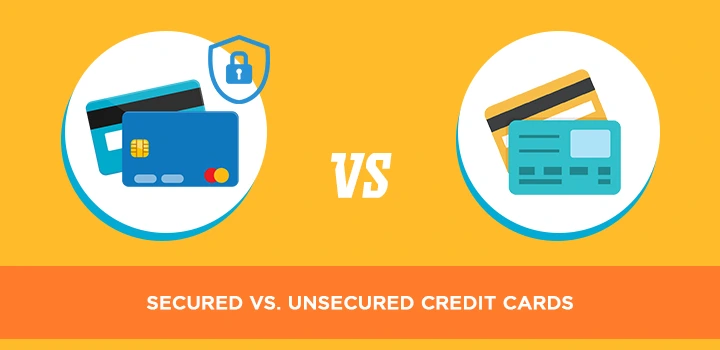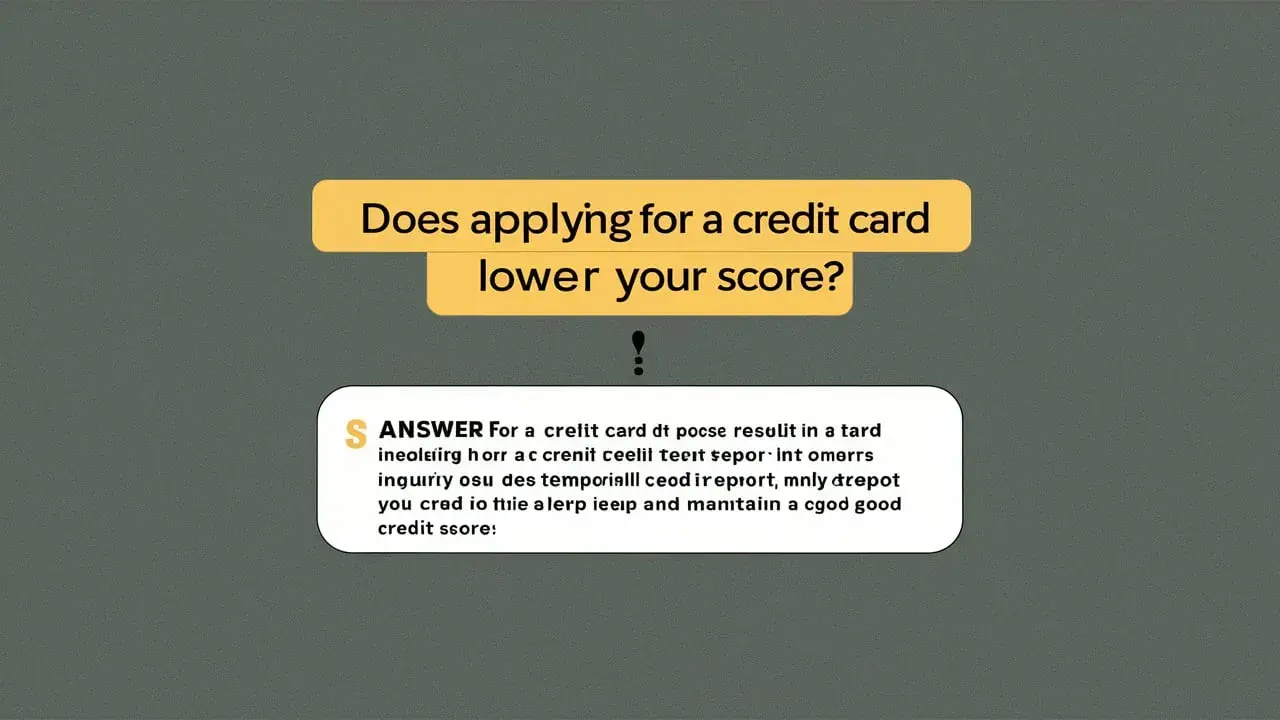-
Posted on: 11 Aug 2023

-
Choosing the right credit card can feel overwhelming, especially when faced with options like secured and unsecured cards. Both serve as tools for making purchases on credit, but they operate under fundamentally different principles. Understanding these differences is crucial for making an informed decision that aligns with your financial situation and goals. This comprehensive guide will delve into the specifics of each card type, outlining their pros, cons, and ideal use cases to help you determine which is the best fit for you.
Understanding Credit Cards: A Quick Overview
Before diving into the specifics of secured and unsecured cards, let's briefly recap what credit cards are and how they work.
A credit card is a plastic card that allows you to borrow money from a lender (typically a bank or credit union) to make purchases. You're granted a credit limit, which is the maximum amount you can charge to the card. Each month, you receive a statement detailing your purchases, the minimum payment due, and the total amount you owe. You can choose to pay the full balance, a partial amount, or just the minimum payment. However, carrying a balance incurs interest charges, which can quickly add up. Responsible credit card use involves making timely payments and keeping your credit utilization (the amount of your credit limit you're using) low.
Secured Credit Cards: Building Credit with a Safety Net
A secured credit card requires a cash deposit as collateral. This deposit typically equals your credit limit. The purpose of the deposit is to mitigate the lender's risk. If you fail to make payments, the lender can use the deposit to cover the outstanding balance. Because of this security, secured cards are generally easier to obtain than unsecured cards, even with a poor credit history.
Key Features of Secured Credit Cards:
- Security Deposit: Requires a cash deposit, usually equal to the credit limit.
- Credit Limit: Typically determined by the amount of the security deposit.
- Reporting to Credit Bureaus: Responsible use (on-time payments) is reported to the major credit bureaus (Equifax, Experian, and TransUnion), helping to build or rebuild credit.
- Interest Rates: Often have higher interest rates compared to unsecured cards, especially for those with good credit.
- Fees: May have annual fees or other charges.
Benefits of Secured Credit Cards:
- Easier Approval: Accessible even with bad or limited credit.
- Credit Building: Provides an opportunity to establish or rebuild credit history.
- Controlled Spending: The credit limit often mirrors your deposit, helping to manage spending.
Drawbacks of Secured Credit Cards:
- Requires a Security Deposit: Ties up your cash, preventing you from using it for other purposes.
- Potentially Higher Interest Rates: Can be more expensive to carry a balance than with an unsecured card.
- Potential for Fees: Annual fees can eat into any benefits.
Who Should Consider a Secured Credit Card?
Secured credit cards are a good option for:
- Individuals with no credit history.
- Individuals with a poor credit history due to past mistakes (e.g., missed payments, bankruptcy).
- Those looking to rebuild their credit score after financial setbacks.
- People who are disciplined with their spending and can make timely payments.
Example Scenario:
Sarah has a limited credit history and has been denied for several unsecured credit cards. She decides to apply for a secured credit card and deposits $500, which becomes her credit limit. She uses the card responsibly, making small purchases and paying them off in full each month. After six months, her credit score has improved significantly, and she's now eligible for an unsecured credit card.
Unsecured Credit Cards: Accessing Credit Based on Your Creditworthiness
Unsecured credit cards, as the name suggests, do not require a security deposit. Instead, the lender grants you credit based on your creditworthiness, which includes factors like your credit score, credit history, income, and employment status. Because there's no deposit to fall back on, lenders take on more risk when issuing unsecured cards, so they typically reserve them for individuals with a good or excellent credit score.
Key Features of Unsecured Credit Cards:
- No Security Deposit: Credit is extended based on your creditworthiness.
- Credit Limit: Determined by your credit score, income, and other factors.
- Reporting to Credit Bureaus: Responsible use (on-time payments) is reported to the major credit bureaus.
- Interest Rates: Vary depending on your credit score and the card type. Often lower than secured cards for those with good credit.
- Rewards and Benefits: Many unsecured cards offer rewards programs (e.g., cash back, travel points), travel insurance, purchase protection, and other perks.
Benefits of Unsecured Credit Cards:
- No Security Deposit Required: Frees up your cash for other needs.
- Potential for Lower Interest Rates: Can save you money on interest charges if you carry a balance.
- Rewards and Benefits: Can earn cash back, travel points, or other valuable rewards.
- Higher Credit Limits: Potentially receive a higher credit limit than with a secured card.
Drawbacks of Unsecured Credit Cards:
- Difficult to Obtain with Bad Credit: Typically require a good to excellent credit score.
- Potential for High Fees: Some cards have annual fees, late payment fees, and other charges.
- Temptation to Overspend: The higher credit limit can make it easier to overspend and accumulate debt.
Who Should Consider an Unsecured Credit Card?
Unsecured credit cards are a good option for:
- Individuals with a good to excellent credit score.
- Those who have a stable income and a good track record of managing debt.
- People who are looking for rewards and benefits from their credit card.
- Individuals who are disciplined with their spending and can avoid carrying a balance.
Example Scenario:
John has a credit score of 750 and a solid credit history. He applies for an unsecured credit card that offers 2% cash back on all purchases. He uses the card for his everyday spending and pays the balance in full each month, earning cash back rewards and avoiding interest charges.
Secured vs. Unsecured Credit Cards: A Direct Comparison
Here's a table summarizing the key differences between secured and unsecured credit cards:
Feature Secured Credit Card Unsecured Credit Card Security Deposit Required Not Required Credit Score Requirement Low or No Credit History Accepted Good to Excellent Credit Required Interest Rates Generally Higher Generally Lower (for good credit) Rewards and Benefits Limited or None Often Offers Rewards Programs Credit Limit Typically Equal to Security Deposit Determined by Creditworthiness Approval Odds High Lower, Depends on Credit Score Graduating from a Secured Credit Card
The goal of using a secured credit card is often to build or rebuild your credit so you can eventually qualify for an unsecured card. After consistently using your secured card responsibly for a period of time (typically 6-12 months), your credit score should improve. At that point, you have a few options:
- Ask for an Upgrade: Contact your credit card issuer and ask if you can upgrade to an unsecured version of the card.
- Apply for an Unsecured Card: Apply for a new unsecured credit card from a different issuer.
- Close the Secured Card: Once you've been approved for an unsecured card, you can close your secured card account and receive your security deposit back (provided you have no outstanding balance).
Before closing your secured card, make sure you understand any potential impact on your credit score. Closing an account can lower your overall credit utilization ratio, which can negatively affect your score.
Making the Right Choice: Factors to Consider
Ultimately, the best choice between a secured and unsecured credit card depends on your individual circumstances. Consider these factors:
- Your Credit Score: If you have a good to excellent credit score, an unsecured card is likely the better option. If you have bad credit or no credit history, a secured card is probably your best bet.
- Your Financial Situation: Can you afford to tie up a cash deposit for a secured card? Are you disciplined enough to avoid overspending and carrying a balance on an unsecured card?
- Your Goals: Are you primarily looking to build credit? Or are you more interested in earning rewards and benefits?
- The Card's Terms and Conditions: Pay attention to the interest rates, fees, and any other charges associated with the card.
Alternatives to Secured and Unsecured Credit Cards
While secured and unsecured credit cards are the most common options, there are other alternatives to consider:
- Credit-Builder Loans: These loans are designed to help you build credit by making regular payments. The funds are typically held in a secured account until the loan is repaid.
- Authorized User: Becoming an authorized user on someone else's credit card can help you build credit, as long as the primary cardholder makes timely payments.
- Debit Cards: Debit cards allow you to spend money directly from your bank account, without borrowing money. While they don't help build credit, they can be a useful tool for managing your finances.










